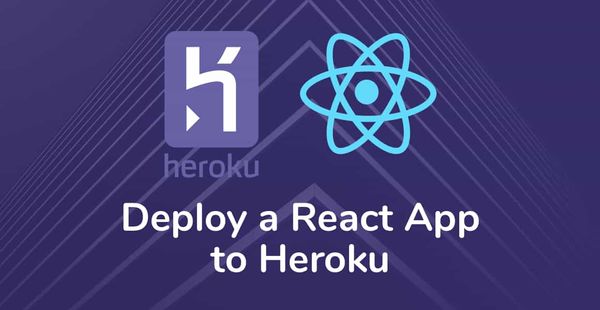Decoding AI as a Service : Prime Insights to know in 2024
Although 'as a service' products such as software and infrastructure are prevalent in the technology industry, Artificial Intelligence as a Service, or AIaaS, is a relatively new concept.
Until recently, Artificial Intelligence was prohibitively expensive for many businesses, as it required in-house GPU systems along with exceptional compute power and resources.
However, before we continue, a word of caution: AI is increasingly used by service providers as a marketing strategy, and there is a great deal of ambiguity surrounding its definitions.
What exactly is AI as a Service?
AI as a Service (AIaaS) refers to a cloud-based model that provides organizations with access to artificial intelligence capabilities and resources.
Everything as a service refers to any software accessed over a network because it depends on cloud computation. In most circumstances, the software is commercially available. You purchase it from a third-party vendor, make some modifications, and begin using it almost immediately, even though it has yet to be completely customized for your system.
AIaaS is the solution for businesses needing help constructing their own clouds and developing, testing, and utilizing their own artificial intelligence systems. This is the most significant benefit: the ability to utilize data insights without requiring a substantial up-front investment in talent and resources.
How does it work?
Advanced AI requires vast quantities of data, the quantity and quality of which are crucial to AI performance. It can extract and classify specific features from this data to generate an output. In machine learning, humans are required to instruct the machine on how to extract features. Deep learning, a significantly more advanced form of AI, enables the system to teach itself to extract and classify data.
Consider the case of autonomous vehicles. The vehicle is equipped with cameras and radar or other sensing technologies to gather information about its surroundings. In addition, it continuously receives and monitors data regarding the vehicle's performance. AI analyzes and classifies the data to determine if the vehicle situation necessitates intervention and then sends the vehicle a command to navigate the scenario securely.
Types of AIaaS
AI Bots
Bots and digital assistance are the most popular type of AIaaS right now. It includes chatbots, digital or virtual assistants, and email automation services. Bots and digital assistance tools use natural language processing (NLP) to extract knowledge from human conversations. Applications in customer service and marketing are the most prevalent users.
AI APIs
This AIaaS solution enables developers to include a particular technology or service in their application development process without creating code from the ground up. Commonly utilized API services encompass natural language processing (NLP), computer vision, knowledge mapping, intelligent searching, translation, and emotion recognition.
Machine Learning (ML)
Machine learning platforms are tools that programmers can use to make their AI style. They learn over time by looking at info about past customers. ML systems are helpful because they only need a little data to work. In other words, they can work for smaller businesses without needing an extensive dataset.
Fully-managed ML
Fully-managed machine learning services provide the same functionality as machine learning frameworks without requiring developers to create their own AI model. This AIaaS solution includes pre-built models, custom templates, and interfaces that do not need coding. This AIaaS is suitable for businesses wanting to avoid investing in development tools.
Growing Significance of AI
AI is influencing the future of humanity in almost every industry. It is already the main force behind new technologies like big data, robots, and the Internet of Things (IoT). It is also the main force behind generative AI, with tools like ChatGPT and AI art generators getting much attention.
As artificial intelligence (AI) keeps improving, it's clear that it can be used in many situations and provide tremendous benefits. IDC says that by 2023, people worldwide will have spent $98 billion on AI.
It's estimated that 44% of businesses want to invest in AI and use it seriously. And of the 9,130 patents that IBM scientists got in 2021, 2,300 were about AI.
AI is helping companies stay competitive in today's fast-paced business world by driving innovation and improving the customer experience, making them more efficient and cutting costs. Businesses can find new chances and be more successful in the future if they embrace AI and use its skills.
How AIaaS differs from Traditional AI Deployment
AIaaS (ai-as-a-service) differs from traditional AI deployment in several ways. Firstly, AIaaS provides a cloud-based, scalable solution that eliminates the need for extensive infrastructure and hardware investment. It offers easy access to a wide range of pre-built AI models and tools, reducing development time.
Traditional AI deployment, on the other hand, often requires significant in-house development and resource allocation. AIaaS offers pay-as-you-go pricing, making it cost-effective and scalable, while traditional deployment can be capital-intensive.
AIaaS enables rapid updates and maintenance, whereas traditional AI systems may require extensive manual intervention. AIaaS simplifies AI adoption, making it more accessible, cost-efficient, and flexible for businesses.
Pros of AIaaS
Reduced Costs
When developing AI capabilities in-house, significant resources and knowledge are required. It takes considerable time to develop and test AI models before deployment. However, with AIaaS solutions, you can avoid these costs while leveraging the required AI capabilities.
Faster Implementation
AI as a service platform does not require complex installation because it is a ready-to-use solution. Instead, you can connect it and gain immediate access to your desired AI capabilities. There is no need to employ a team of data scientists or develop complex infrastructure, which is an advantage.
Advanced AI Access
AIaaS provides access to cutting-edge AI technologies and algorithms that may be beyond the reach of many organizations. Service providers constantly update their AI tools and services, ensuring their clients can access the latest innovations. Businesses can benefit from state-of-the-art AI capabilities without hiring a dedicated team of AI experts.
Regular Updates
AI models and algorithms require continuous refinement and updates to remain effective. AIaaS providers take care of this by regularly updating their AI offerings. This ensures that businesses using AIaaS stay at the forefront of technological advancements and maintain their AI solutions' highest accuracy and performance.
Accessibility
AIaaS enables businesses of all sizes, even those with limited resources, to leverage AI technology by providing AI resources via the cloud. This eliminates the restrictions that previously limited AI usage to large corporations and tech titans.
Choose the right AI as a Service provider
Choosing the right AI as a Service (AIaaS) provider is critical for businesses looking to leverage AI technologies. The following factors can help you in making an informed decision:
- Service offerings: Consider the specific AI services and solutions the provider offers. Some may specialize in natural language processing, computer vision, or machine learning, while others provide a broader range of AI capabilities. Choose a provider that aligns with your business requirements and objectives.
- Past experience with projects similar to yours: As with other tech projects, it helps to have worked with similar companies or projects before. The right AI as a service providers will learn from past errors and know what works and what doesn't while gaining this experience. This information is invaluable for the successful implementation of your AI project.
- Technology platforms the provider uses: The ai-as-a-service solution you're developing should be flexible and able to grow as needed. The technology platforms used to build the solution are very important to reach these goals. Check to see what platforms the seller works on. Most of the time, it's best if the vendor uses open-source solutions and big technology platforms. This gives you the most flexibility and makes it easier to grow in the future.
- Customization and integration: Determine whether the AIaaS provider allows customization and integration with your existing systems and processes. This flexibility is crucial for tailoring AI solutions to your specific needs.
- Pricing and cost transparency: Understand the pricing structure and any hidden costs associated with the AI services. Look for a service provider with transparent pricing and a budget-friendly pricing structure.
AIaaS Deployment Best Practices
Deploying AI as a Service (AIaaS) requires careful planning and implementation to ensure that your artificial intelligence solutions benefit your organization the most. Here are some best practices to consider when deploying AIaaS:
- Define Clear Objectives: Start by clearly defining your AI project's objectives and how they align with your business goals. This clarity will help guide your deployment strategy and ensure that AI solves real problems or creates tangible value for your organization.
- Data Quality and Preparation: High-quality data is the lifeblood of AI. Ensure that your data is clean, well-structured, and representative of the problem you want to solve. Preprocessing, data augmentation, and data quality checks are essential to make your AI models effective.
- Model Selection and Training: Carefully select the appropriate AI model or algorithm for your use case. Train your models on a representative dataset, and regularly retrain them to adapt to changing data patterns. Consider techniques like transfer learning to expedite model development.
- Testing and Validation: Implement robust testing and validation procedures to ensure your AI system performs as expected. This includes split testing, cross-validation, and assessing the model's performance on various real-world scenarios.
- Data Security and Privacy: Prioritize data security and privacy throughout the AIaaS deployment. Implement encryption, access controls, and data anonymization to safeguard sensitive information.
- Monitoring and Maintenance: Implement continuous monitoring of your AI system's performance, security, and compliance. Develop a maintenance plan to address issues promptly and ensure the system's health.
Conclusion
AIaaS is not just a technology trend; it's a strategic move that can have a profound impact on the future of businesses. With an appropriate implementation strategy and vigilant monitoring, organizations can leverage AIaaS to achieve their objectives and navigate the ever-changing landscape of data and technology.
Curious about the advantages of implementing ai as a service business model in your industry, or are you seeking to ensure your strategy's soundness? Get in touch with us. We will gladly discuss your business use cases and determine if our solution can help!
FAQs
Q. What is an example of AI as a service?
A. An example of AI as a service is the use of natural language processing (NLP) services provided by platforms like Amazon Web Services (AWS) or Google Cloud. These services allow businesses to integrate NLP capabilities, such as text and speech analysis, sentiment analysis, and chatbots, into their applications without having to develop these capabilities from scratch.
Q. What is the future of AI in SaaS?
A. The future of AI in Software as a Service (SaaS) is promising. AI is expected to have a significant impact on the enhancement of Software-as-a-Service (SaaS) applications. This impact will be achieved through the integration of predictive analytics, customization, automation, and data-driven insights into these systems. As AI continues to advance, SaaS companies will increasingly integrate AI features to improve user experiences and provide more valuable solutions.
Q. How can SaaS companies use AI and ML moving forward?
A. SaaS companies can leverage AI and ML to enhance personalization, automate tasks, provide predictive analytics, improve security, analyze large datasets for insights, implement natural language processing for chatbots and content generation, and continuously refine their products based on user feedback. These technologies will help SaaS companies stay competitive and deliver more user-centric solutions.




